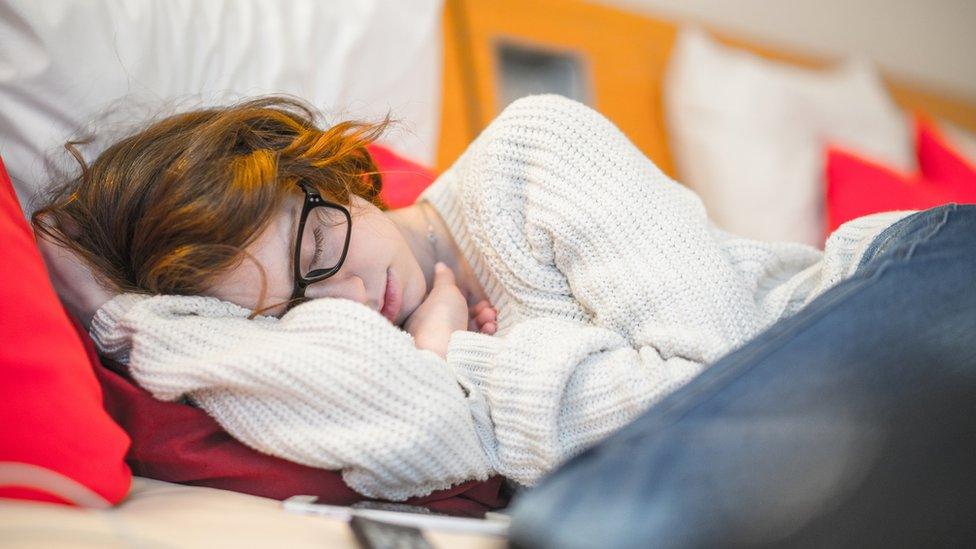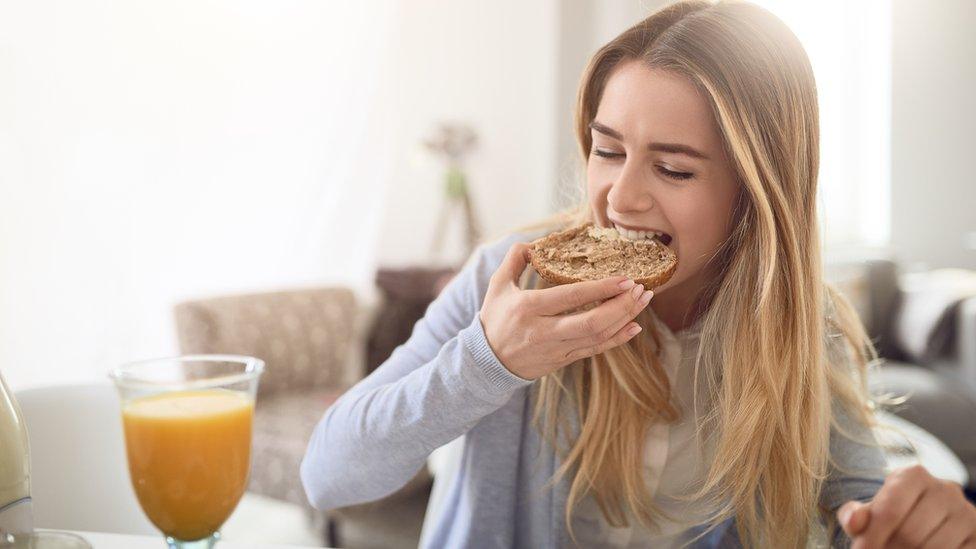One in four children 'has too little sleep'
- Published

About a third of girls have too little sleep, compared with 23% of boys
One in four 11 to 15-year-olds in England have too little sleep, a World Health Organization study suggests.
The Health Behaviour in School-aged Children report questions 3,398 11, 13 and 15-year-olds every four years.
And 27% now say they are too tired to concentrate on their lessons - 17% of 11-year-olds, 28% of 13-year-olds and 42% of 15-year-olds.
The proportion of 15-year-olds who say they have have low moods at least once a week has also risen, from 40% to 50%.
One in four 15-year-olds say they have self-harmed - and the proportion is rising faster among boys.
Girls, though, are more likely to have too little sleep, 32% compared with 23% of boys.
Just one in six of the youngsters (15%) say they are physically active for at least an hour a day.
But seven in 10 take part in "vigorous" physical activity at least two to three times a week, with boys (74%) more likely to do so than girls (63%).

Eating breakfast is a priority for about two-thirds of young people
The study also suggests children are becoming less likely to take part in risky behaviour:
just 3% say they have smoked at least three times in the past 30 days, while 7% have drunk alcohol
21% of 15-year-olds have tried cannabis, while 20% have had sex, down from 41% in 2002
And when it comes to food:
63% eat breakfast every day
44% meet the government recommendations of eating five portions of fruit and vegetables every day
39% usually eat a meal with their family every day, down from 51% in 2014
'Worrying'
Dr Ellen Klemera, senior research fellow at the University of Hertfordshire, which hosted the study, said: "Research on adolescent health has highlighted how important the second decade of life is for health and wellbeing, which is why this continued decline of emotional wellbeing is really worrying.
"Although there are far less reported incidences of risk behaviours, young people are facing a multitude of different challenges that other generations have not really experienced, such as the prominence of smartphones and social media.
"These can have a negative impact on wellbeing, particularly if they are exposed to cyber-bullying or if it affects their sleep."
Martin Weber, a WHO programme manager for child and adolescent health and development, said: "The mental health of young people is as important as their physical health.
"The new HBSC report gives us a good insight into the problems young adolescents face and the effect it has on their health.
"Increase in sleep difficulties, feeling low and self-harm are just some of the issues that need to be addressed."